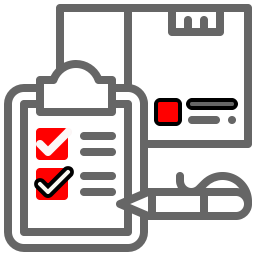
Startups
Intellectual Property (IP) is an intangible business asset that is becoming increasingly important these days. Startups in particular need to know the importance of IP and how IP can add value to their business. As a part of careful business planning and execution, intellectual property rights (IPRs) protection is crucial to modern business, especially Startups. IPRs are a key driver of innovation, and it highlights the need to enhance industrial competitiveness by fighting global counterfeiting.
It is essential that Startups take steps to protect their IPRs before launching their products or services in a particular country. As IP protection is territorial in nature, Startups need to ensure that they have the exclusive trademark rights that protect the relevant and innovative features of their products thus strengthening their competitive position in the marketplace and preventing imitators from manufacturing similar or identical products or services. To avoid any deficiency of such essential protection, Startups should seek all relevant forms of IP registration available under the laws and procedures in the countries where the product or service will be launched.

Startups should be encouraged to register their new technology as a patent because the resulting patent application is likely to improve their scope and freedom to operate in the marketplace, such that no one else in the market can make, sell, use or distribute the new technology without the patent owners express approval; such control provides a Startups with a huge competitive edge over its competitors. In addition, a patent is considered as an essential company asset, one that can be sold or serve as collateral for bank loans.
For the Startups where the value of the products is the design, Startups should file the application for the Industrial Design protection which is provided the protection for a shape, configuration, surface pattern, color, or line (or a combination of these), not the function of the products.
Regarding patent and design protection, Startups should be aware of the deadline for filing the application and be careful not to disclose the information too early or without a confidentially or non-disclosure agreement.
The patent application could be filed under the Paris Convention, the Patent Cooperation Treaty (PCT) or the European Patent Convention (EPC); these follow a patent protocol system that facilitates obtaining patent protection in many countries around the world. If a Startup is in a member country of the PCT and would like to register a patent in multiple countries around the world, it is recommended to file the patent application through the PCT system. Another benefit of the PCT system is that the applicant will receive an international search, which places the applicant in a much better position to decide whether to delay the filing of a particular member nations patent application during a protected period of 30 months. In summary, the decision and cost of filing national patent applications under the PCT rules can be postponed for an additional 18 months beyond the national or regional filing deadline where the additional applications need to be filed within 12 months of the first patent filing.
For the design application, if a Startups are in a member country of The Hague Agreement, it can file an industrial design application through that system which offers the option of obtaining protection in all its member countries by filing a single international application in a single language either directly with the International Bureau of WIPO or indirectly through the national office in a country party to the treaty. Thailand is not yet a member of The Hague Agreement. Hence, it is required to file the direct design application in Thailand.

For the new technology Startups, there is always the question as to whether they should patent their new technology or simply keep it a secret. In fact, this depends on the Startups’ business strategy and whether the invention or technology is patentable or not. If it does not meet the patentability criteria, then it can only be protected as a trade secret.
There are essential similarities and differences to be considered in choosing between patent protection and trade secret protection for a new technology. A comparison of these two types of IP protection follows:
- In terms of scope, patent protection is more limited than trade secret protection because a patent must satisfy all statutory subject matter as to (i) the novelty, (ii) the inventive step and (iii) the capability of industrial application in order to be patentable. By contrast, trade secret protection can be asserted for any type of information or idea as long as one can safeguard the information or idea from disclosure to and use by others.
- As to the degree of disclosure of the new technology, a trade secret simply requires secrecy, while a patent requires full disclosure. In fact, if the intended use is public in nature, then patent protection should likely be sought thus giving the patent owner the exclusive right to defend the patent against any infringement. In contrast, because a trade secret is not granted as an exclusive right, it is more difficult to protect and defend against an infringement.
- Patent protection is acquired through a legal process that incurs legal fees for patentability assessment, application preparation, application submission and the subsequent maintenance. Since trade secrets do not require extensive legal procedures, the cost to maintain its trade secret status is dependent only on the measures necessary to maintain its secrecy.
- Regarding the duration of protection, patent protection lasts in general for up to 20 years, while a trade secret may continue indefinitely as long as it remains a secret.
As to the comparison mentioned above, if the new technology is eligible for either patent or trade secret protection, then the decision on how to protect it depends on business considerations and the weighing of the relative benefits of each type of IP.

Trademark is valuable in being an effective communication and branding tool that allows customers to know the origin of the products. The process, registrability and requirements for trademark registration will vary in each country. One of the most important factors in determining the registrability of a trademark is the requirement that the mark must be sufficiently distinctive such that it is capable of identifying and distinguishing the goods or services being proposed from that of other goods or services. A trademark may be either inherently distinctive or, alternatively, be likely to acquire a secondary meaning or distinctiveness as a result of recognition by the relevant public after a period of use. While the degree of distinctiveness may differ according to the country, the trademark owner should avoid descriptive words in the application process that are overly generic, thus increasing the registrability of the proposed trademark.
Because trademark rights are territorial in nature, it is recommended that, prior to filing a trademark application, the Startups conduct a trademark search in the country where they would like to sell or license their products, so as to ensure that it is not identical or confusingly similar to existing marks in the relevant category of products.
In order to further avoid infringement issues from another companys trademark rights, the following steps are recommended: [i] search relevant dictionaries for similar looking or sounding words in all relevant languages, [ii] examine the use of the mark in the relevant marketplace, including that of well-known marks, and [iii] check the availability of all relevant domain name and business names.
There are numerous systems for filing trademark application depending on the countries designated by the applicant. The application can be filed under the Paris Convention, the Madrid Protocol or under other Multinational Trademark Rights conventions such as the Community Trademark (CTM) or African Union (OAPI). The Madrid System is a good choice if the Startups are in a member country of the Madrid Protocol and all or most of its target countries are also members. The Madrid system allows trademark owners to seek registration in member jurisdictions through means of a central filing system which allows just one application, prepared in one language, and with fees paid in one currency.
However, Startups should be aware of a potential drawback under the Madrid protocol which occurs due to the fact that the underlying application impacts the international registration for the first five year, and thus the registration has the risk that it may not be assigned at all in the applicants selected countries. Also, it is important to note that the Madrid protocol does not cover all countries around the world. Therefore, Startups might need to a file trademark application through Paris Convention in some counties to cover all the designated countries.

Licensing agreement is a useful tool if Startups would like to become a world player but do not have enough funds to manufacture their products themselves. It allows Startups to garner profits globally without having to establish local businesses in numerous countries, thus reducing the need for capital investment. A licensing agreement grants permission by an owner of an IP right (licensor) to another party (licensee) the right to use the product for a prescribed period of time, while allowing the Startups to retain the right of ownership of the product or new technology.
Before entering into a licensing agreement, Startups should seek to qualify any potential licensees in the target country by investigating their reputation, experience, and financial condition and whether the licensees handle other products that might conflict or compete with the licensed products being proposed. Following this step, Startups should conduct another step of due diligence aimed at analyzing the potential risks and benefits that affect the value and success of the products and/or technology being proposed developing strategies for overcoming the risks and capitalizing on the benefits as presented assessing the legal and business environment and gathering information on the proposed market and technology, including any competing products or technologies in the market, whether existing or being developed.
Both the Startups and the potential licensee should do such due diligence. It is highly recommended for the two parties to enter into a confidentiality agreement before beginning the due diligence or negotiation process, as each will be required to disclose confidential information.
Subsequent to the completion of the due diligence, but prior to the final negotiation of the licensing agreement between the Startups and the potential licensees, a valuation of the licensed products and/or technology is needed in order to set the basis for a mutually satisfactory and profitable future relationship.
In order to structure a mutually beneficial license agreement, the following are some of the key issues that need to be considered:
- the scope of the license
- the geographic territory
- the royalty fees and rates
- the exclusivity of license rights (whether exclusive or non-exclusive)
- any sublicensing rights
- the duration
- the scope of use
- the quality-control standards and procedures
- cross-licensing,
- and a termination provision
It is in the interest of both parties that the Startups and the potential licensee present a business and marketing plan as it relates to the prospective license agreement. Such a plan should outline how the Startups will provide technical assistance and support for the product/technology to the licensee in a manner that will help them generate income more quickly, thus benefiting the Startups via royalty income.
It is also recommended for the Startups to enter into a trademark licensing agreement in order to retain ownership of the trademark and the associated goodwill during their international expansion and the associated building of their brand.

If the Startups are in a member country of the Berne Convention, there will be no formalities needed to qualify for copyright protection as all member countries are afforded "national treatment", in which case the laws of each member country are applied to protect foreign copyright holders in the same manner that the rights of native citizens are protected.
However, to further strengthen the protection, the authors may record their ownership of copyright works with the Department of Intellectual Property. While such copyright recording is not deemed as absolute evidence of ownership in their copyrighted works, it can be treated as relevant evidence when there is a dispute.

It is recommended for Startups to select a domain name that is the same or similar to its business or trademark. Those top-level domains [TLD] with the. Com; designations are generally considered around the world as having the most valuable and best-known category. However, if the Startup would like to adopt a new domain name that is not the same as the trademark it already owns, it should check to see if that domain name is available and also do a trademark clearance search to ascertain that no other partys trademark rights would be infringed.
To register domain name in Thailand under .co.th for business organization in Thailand, the applicant must be a company registered under the Thai law or a foreign company that has representative in Thailand, the representative must be registered under the Thai law and entitled by the foreign company for domain name registration.
The domain name must be accord with; be part of; be an abbreviation of the company name. Each company can register only one domain name. Trademark or service mark can also be registered as a domain name under .co.th, the condition is the mark needs to be a registered trademark in Thailand or outside of Thailand.
Stay ahead of competitive challenges

Apart from securing and enforcing it IPRs in order to build value in the business and help it stay ahead of the competition, a Startups residual competitive situation is crucial to a stable future.To stay ahead of competitive challenges, Startups need to keep innovating their product offerings, including the developing of new technologies, and to constantly monitor the market to understand what its competitors are doing.
Startups need to keep in mind that efforts focused on developing or creating new or improved technology from in-house research and development (RD) can also be supplemented by using technology from external sources and IP owners such as universities, research laboratories, companies or individuals. To find such sources, access to IP information is needed, and such information may provide a way to find and develop new ideas and identify key trends in the market, especially for IP information related to patents and technologies that can be leveraged by the Startups business strengths or those of potential competitors.

Access to IP information, particularly patent information, is available via online databases, which allow quick, inexpensive and convenient research. Such up-to-date and real-time information can provide useful discovery for Startups because technical information about a product or process of a competitor might be published in a patent specification well before the technology or product appears on the market.
Furthermore, patent study and analysis can help Startups find out the flow, trend, and life cycle of technological change, along with finding potential problems and their solutions in the development of a particular technology. During the patent search, a Startup may also find patents that are compatible with their business activities that have already been granted, but not yet commercialized, and which could be purchased from the owner.

A Startups efforts in keeping an updated IP portfolio including frequent IP audits will help to ensure its understanding of the value its IP can provide to the business and, thus, how well the portfolio is aligned with its commercial goals.
Contact us if you need any IP consulting for your Startup.
Startup consultancy package at only THB 9,900! The package included reviewing business, providing primary advice on IPs related to business, suggesting the best strategy to protect IPs and the future of IP in the business.